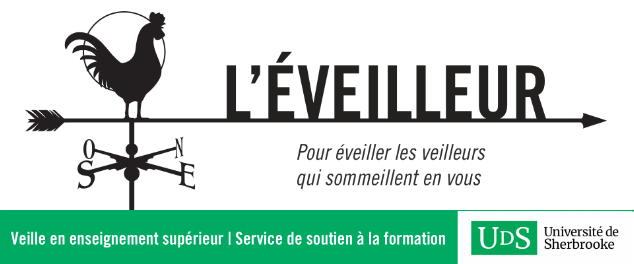Signalé par Paul Cauchon ce matin dans Le Devoir (http://www.ledevoir.com/2009/01/05/225743.html), mais également par Philippe Marcoux à l’émission C’est bien meilleur le matin, cette étude de la Elon University de Caroline du Nord, en collaboration avec le Pew Internet & American Life Project: http://www.elon.edu/docs/e-web/predictions/2008_survey.pdf.
Il s’agit du troisième volet de l’étude longitudinale « Imagining the Internet » (http://www.elon.edu/predictions/) sur les prévisions effectuées par des experts, militants et fondateurs de l’Internet depuis le début des années 1990 à nos jours. Ce dernier volet demande aux répondants de se projeter en l’an 2020. On leur soumet des scénarios futurs vraisemblables mais aux effets controversés et on leur demande s’ils y croient ou non, puis de réagir par écrit à l’énoncé.
En voici les principales conclusions. Je les copie-colle en anglais, mais l’article de Cauchon cité plus haut en fait une bonne traduction:
- The mobile device will be the primary connection tool to the Internet for most people in the world in 2020.
- The transparency of people and organizations will increase, but that will not necessarily yield more personal integrity. social tolerance, or forgiveness.
- Talk and touch user-interfaces with the Internet will be more prevalent and accepted by 2020.
- Those working to enforce intellectual property law and copyright protection will remain in a continuing “arms race,” with the “crackers” who will find ways to copy and share content without payment.
- The divisions between “personal” time and work time and between physical and virtual and between physical and virtual reality will be further erased for everyone who’s connected, and the results will be mixed in terms of social relations.
- “Next-generation” engineering of the network to improve the current Internet architecture is more likely than an effort to rebuild the architecture from scratch.



